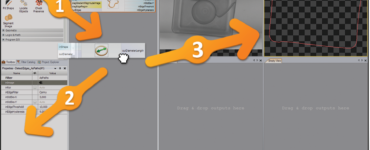Have you ever felt like you just can’t stop eating, even when you’re full? You’re not alone.
Binge Eating Disorder (BED) is a real and common struggle for many, but the good news is that it doesn’t have to control your life. In this article, we’ll explore practical steps to break free from the cycle of binge eating. You’ll learn coping strategies to understand your triggers, cope with emotions, and develop a healthier relationship with food.
Say goodbye to shame and hello to food freedom!
Seek Professional Help
Sometimes, the journey to overcoming binge eating starts with reaching out for professional guidance. Teaming up with a therapist or a dietitian can provide you with personalized strategies and support. They are there to help you navigate through the twists and turns, ensuring you don’t have to face this alone.
Professionals can dig deep into the reasons behind your eating patterns and help untangle the emotions connected to food. They can work with you to build a plan that suits your lifestyle and addresses your specific challenges. Remember, asking for help isn’t a sign of weakness, it’s a powerful step towards taking control.
Develop Healthy Eating Patterns
Developing healthy eating patterns starts with setting a regular meal schedule. Eating at consistent times helps your body understand when it’s time to eat and when it’s time to stop. This way, you’re less likely to feel extremely hungry and fall into the trap of binge eating.
Another key part is to listen to your body and learn to identify true hunger cues. Focus on the balance of your meals, including a variety of foods to keep you full and satisfied. This balance helps you avoid the kind of cravings that can lead to a binge.
Mindful Eating Practices
Mindful eating is all about being present while you munch. It means paying close attention to the taste, texture, and aroma of your food, and noticing how it makes you feel. Slowing down can help you realize when you’re full and reduce the chances of eating more than you need.
Practicing mindful eating also involves eating without distractions, like turning off the TV or putting away your phone. This way, you can truly listen to your body’s hunger and fullness signals, which is a powerful step in overcoming binge eating.
Keep a Food Journal
Writing down what you eat can shine a light on your eating habits. A food journal isn’t about tracking every single calorie, it’s about noticing patterns and emotions related to your food choices. It can help you identify the triggers that lead to binge eating.
Looking back on your journal can guide your conversation with a therapist or dietitian, showing them where you might need extra help. It’s a practical tool that supports you in making more mindful food choices every day.
Challenge Negative Thoughts
Challenging negative thoughts is like having a chat with a cranky inner critic who loves to put you down. It’s important to catch those sneaky, self-defeating thoughts and flip them into something positive. Replace the “I can’t” with “I can try” and see how your attitude towards food starts to change.
Remember, your thoughts are powerful, but they’re not the boss of you. Each positive thought is a step forward in your journey towards a healthier relationship with food and yourself. And, if you find it beneficial, you can also buy Vyvanse here for additional assistance in your journey towards food freedom.
Emotional Regulation
Learning to handle your emotions is a big part of dealing with Binge Eating Disorder. It’s about knowing what feelings make you want to eat and finding other ways to deal with them. You’re not just eating because you’re hungry, but because you’re feeling something strong.
There are lots of different ways to manage those tough emotions without turning to food. You could try talking to a friend, going for a walk, or finding a hobby that keeps your hands busy and your mind at ease.
Build a Support System
Creating a circle of people who understand and support you can be a game-changer in your recovery from Binge Eating Disorder. Friends, family, and support groups can offer encouragement and a listening ear when you need it most. It’s comforting to know you’re not in this alone, and there’s strength in numbers.
When you build a support system, choose people who are positive and who make you feel good about yourself. This network will become a safety net, giving you strength on the tough days and cheering you on during your victories.
Nutritional Counseling
Nutritional counseling is a key piece of the puzzle in your journey with Binge Eating Disorder. With the guidance of a nutrition expert, you can get the know-how to choose foods that nourish your body and mind. They’ll equip you with the skills to create meals that satisfy you, not just momentarily, but in the long run.
This supportive approach can help you establish a new, positive relationship with food, where you’re in charge. Eating becomes less about responding to stress and more about taking care of your health and well-being.
Exercise Moderation
Moderate exercise can be a great ally in your battle against Binge Eating Disorder. It’s not just about burning calories; it’s about creating a healthier lifestyle and improving your mood. Regular physical activity can increase feelings of well-being and help reduce the urge to binge.
When incorporating exercise into your life, choose activities that bring you joy rather than seeing them as a chore. Whether it’s a brisk walk, a dance class, or yoga, find a form of movement that feels good to you and fits into your routine.
Break Free From the Chains of Binge Eating Disorder
Breaking free from binge eating disorder is a journey of small steps towards a big change. It’s embracing a new way of life where you have the power over food, not the other way around.
With each mindful bite, each supportive chat with a professional, and every honest entry in your food journal, you’re reshaping your relationship with food. So go ahead, take back your control and celebrate every victory on your path to food freedom.
We hope this article was helpful to you. If you enjoyed it, be sure to check out our blog for more valuable information and resources.










